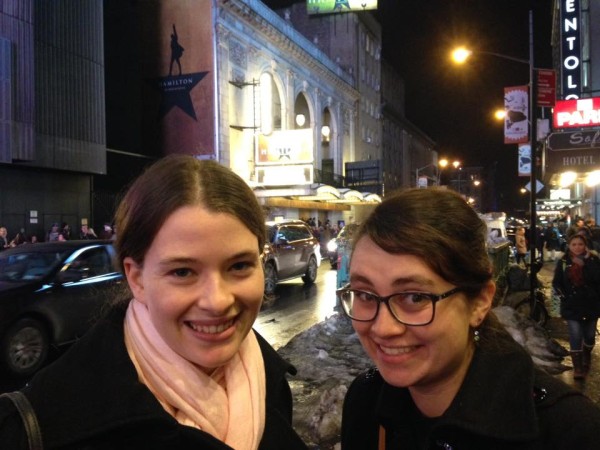 Oh my god, there he is! Oh my god, oh my god, oh my god!” I can’t seem to form coherent thoughts. Every atom of my being is focused on the man in the shiny green waistcoat.
Oh my god, there he is! Oh my god, oh my god, oh my god!” I can’t seem to form coherent thoughts. Every atom of my being is focused on the man in the shiny green waistcoat.
The crowd around me has erupted in applause, and he has to pause for a moment before making his introduction. “Alexander Hamilton, my name is Alexander Hamilton. There are a million things I haven’t done, but just you wait. Just you wait.”
I have forgotten how to breathe.

Daveed Diggs as Marquis de Lafayette, Okieriete Onaodowan as Hercules Mulligan, Anthony Ramos as John Laurens and Lin-Manuel Miranda as Alexander Hamilton in Hamilton. Photo from broadway.com
The man on stage in front of me is Lin Manuel Miranda, the writer and star of the new Broadway play Hamilton. I’m sitting in the Richard Rodgers Theater surrounded by 1,318 other people; the energy in the room is more akin to what one expects at a rock show than at a Broadway play.
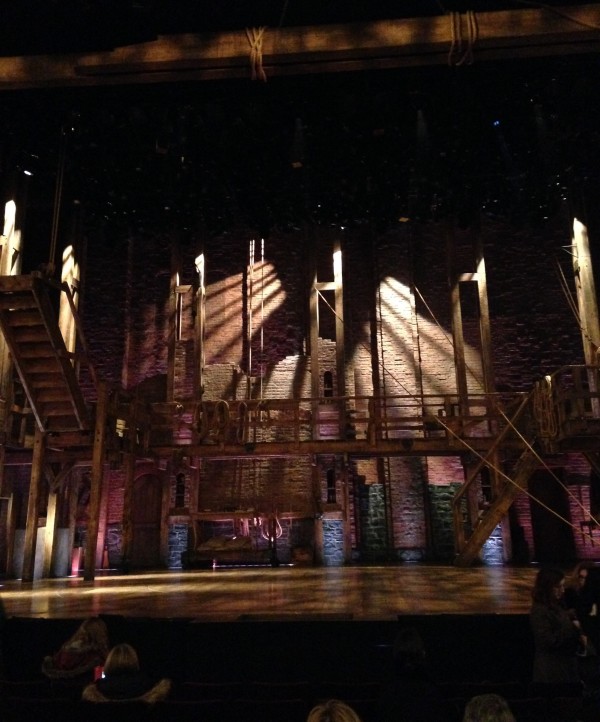 To say that this show is a hit is to grossly understate its popularity. Tickets are sold out through January of 2017. I only managed to come by mine because I purchased them the week before the soundtrack was officially released last fall (I bought them on a break at work and I don’t believe my feet touched the Capitol floor for the rest of the day.)
To say that this show is a hit is to grossly understate its popularity. Tickets are sold out through January of 2017. I only managed to come by mine because I purchased them the week before the soundtrack was officially released last fall (I bought them on a break at work and I don’t believe my feet touched the Capitol floor for the rest of the day.)
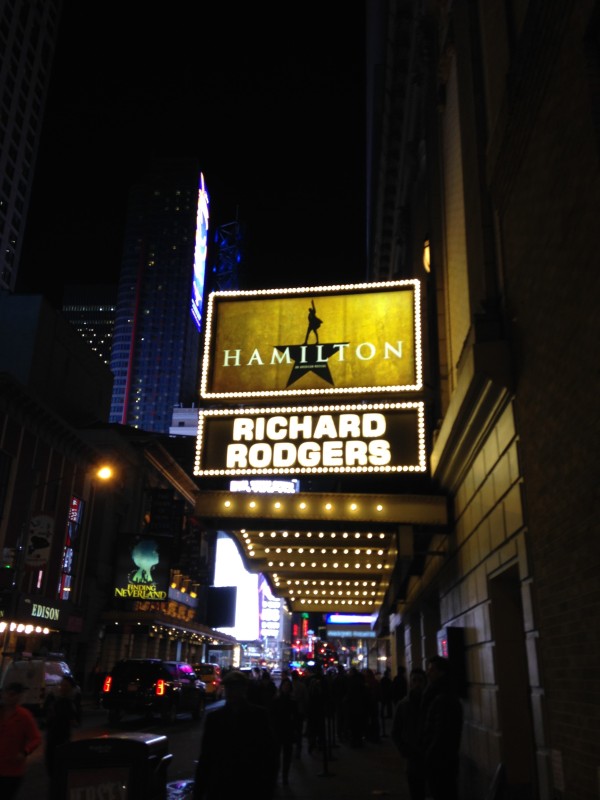 What makes this play unique is its innovation. 1776 aside, theater usually doesn’t focus on early American history, and it’s even more unusual to find our Founding Fathers rapping. Through Hamilton, Miranda has taken the 18th century and given it an updated beat. I dare you to not have fun.
What makes this play unique is its innovation. 1776 aside, theater usually doesn’t focus on early American history, and it’s even more unusual to find our Founding Fathers rapping. Through Hamilton, Miranda has taken the 18th century and given it an updated beat. I dare you to not have fun.
But beyond the updated lyrics, there is an incredible amount of history, which is why his work speaks to me on so many levels. Miranda wrote his play after reading Ron Chernow’s biography about Alexander Hamilton, but he didn’t stop there. Just like we do in the Historic Area everyday, Miranda researched every character in the show, and even did a lot of his writing at different historic sites around New York and New Jersey. He visited the house where Aaron Burr lived for a year, and had the privilege of sitting in Burr’s bedroom while he wrote the words that Leslie Odom Jr. sings onstage as Aaron Burr five days a week. He has not only captured the facts, but also the essence of the place and the people.
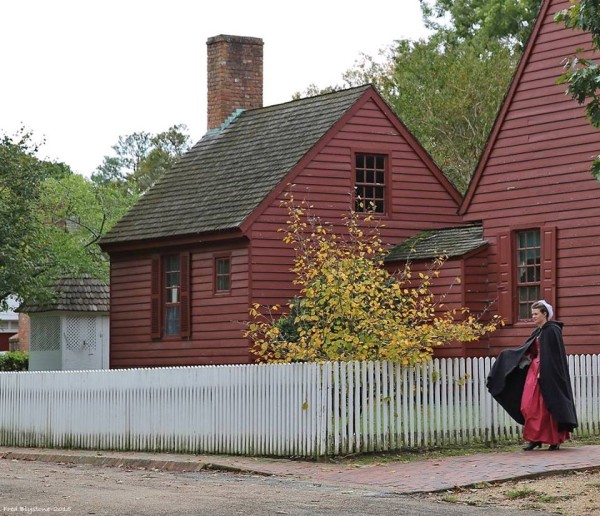 As an historic interpreter, this speaks to me. Often times when I tell people my job title they get confused or think that I am fluent in another language. Generally, at some point in the conversation they go “Ohhhhh, so you’re a tour guide?” Which, to be fair, is the most simplistic way to look at what I do every day. But living and working in Colonial Williamsburg is so much more than walking people through a building and pointing out old furniture. Just like Miranda, we are tasked with creating a compelling narrative for people who often left little or no words of their own behind. We do have an advantage over Broadway, however. Where Miranda has had to craft the broad strokes of an 18th-century world through set and costume choices, we have that world at our fingertips. It’s up to us to capture the most meaningful parts of people’s stories, and to translate (or perhaps interpret) them to our modern world.
As an historic interpreter, this speaks to me. Often times when I tell people my job title they get confused or think that I am fluent in another language. Generally, at some point in the conversation they go “Ohhhhh, so you’re a tour guide?” Which, to be fair, is the most simplistic way to look at what I do every day. But living and working in Colonial Williamsburg is so much more than walking people through a building and pointing out old furniture. Just like Miranda, we are tasked with creating a compelling narrative for people who often left little or no words of their own behind. We do have an advantage over Broadway, however. Where Miranda has had to craft the broad strokes of an 18th-century world through set and costume choices, we have that world at our fingertips. It’s up to us to capture the most meaningful parts of people’s stories, and to translate (or perhaps interpret) them to our modern world.
Miranda has stated that Hamilton is “the story of America then told by America now.” When you look at the cast, you see “America now,” but while you’re watching them you don’t notice skin tones or modern words. Perhaps it’s because of these things that the well known characters seem so relatable to such a wide range of people: theatergoers, historians, rap lovers, and Broadway fans young and old. If you do nothing else after you read this, go watch the performance that the cast put on for the Grammy’s. The show is amazing, but it’s the reaction from the audience that gets me. Everyone is screaming; they’re on their feet—and that’s not an award show anomaly. That energy exists inside the theater for every performance. I know, because I had the privilege to be there and be a part of that screaming crowd. Believe me, these guys earn their ovations.
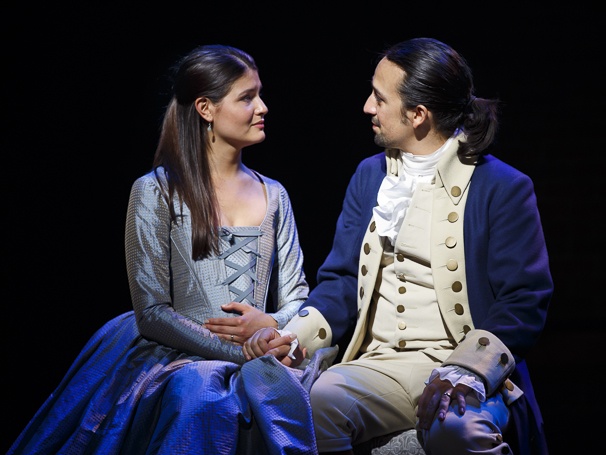
Phillipa Soo as Eliza Hamilton and Lin-Manuel Miranda as Alexander Hamilton in Hamilton. Photo from broadway.com
Beyond the applause, Miranda has brought other characters back into the story. Alexander Hamilton’s wife, Eliza, is a “founding mother” who is often overlooked, but he puts her back in the narrative.
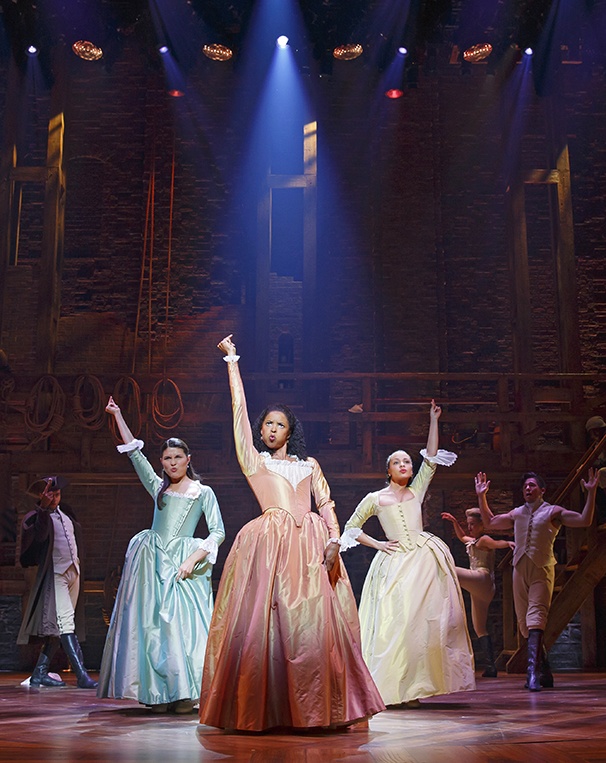
Phillipa Soo as Eliza Hamilton, and Renee Elise Goldsberry as Angelica Schuyler and Jasmine Cephas Jones as Peggy Schuyler in Hamilton. Photo from broadway.com
He has also given agency to another important woman: Angelica Schuyler. Angelica, Hamilton’s actual sister-in-law, has one of the most compelling moments in the show when she describes why the 18th-century world that she lives in won’t allow her to pursue a relationship for romance’s sake alone. Lest you think Angelica is written as a simple romantic foil, she offers her own political thoughts the very moment she walks out on stage: “Now listen to my declaration: ‘We hold these truths to be self evident that all men are created equal!’ And when I meet Thomas Jefferson, Imma compel him to include women in the sequel!” (Mr. Jefferson, I would love to hear your thoughts on this. If you can get tickets, of course…)
But I digress. So why am I writing this blog for Colonial Williamsburg about my obsession with a show that’s happening hundreds of miles away? Well, to be blunt: Hamilton-mania has swept the Historic Area. As a result of this show, a small group of us began an after hours just-for-fun “Federalist Papers reading club.” It’s not that we haven’t read them before; it’s just that all of a sudden these documents have a sense of importance that somehow I never managed to get from them when they were assigned reading in High School (Sorry Mr. P, I swear I really read them back then too.)
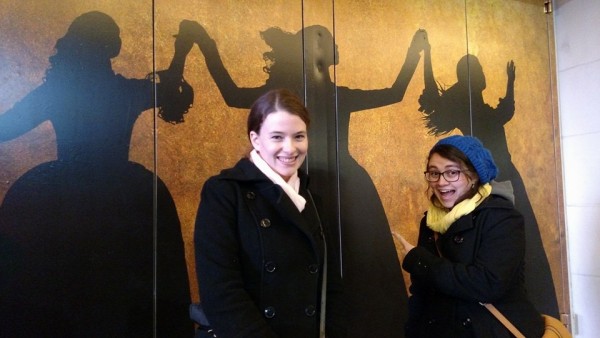 If you were here over Christmas, you may have noticed there was a house decorated with “Hamil-wreaths.” That house is mine, and while I may not have won a blue ribbon for my designs, one evening as I walked home I witnessed a group of eighth graders start jumping up and down when the recognized the wreaths and immediately pull out their smart phones to look at the lyrics so that they could sing the songs.
If you were here over Christmas, you may have noticed there was a house decorated with “Hamil-wreaths.” That house is mine, and while I may not have won a blue ribbon for my designs, one evening as I walked home I witnessed a group of eighth graders start jumping up and down when the recognized the wreaths and immediately pull out their smart phones to look at the lyrics so that they could sing the songs.
That was the best prize I could have asked for. Just the other day I got a text from a coworker and friend that read “I…and I freely confess this…just listened to Hamilton the musical for the first time today while driving back from a seminar…it was mind blowingly amazing!!!!!” This is more than a cultural phenomenon. It’s inspiring a whole new group of people to look at history through fresh eyes.
The first time I listened to George Washington tell Hamilton that “History has its eyes on you” I burst into tears. Yes, for me it’s personal because I spend my days telling stories about our past, but Miranda has tapped into something deeper in our national consciousness. We grow up being told that we are far removed from this history, that our founding fathers and mothers were part of a long lost generation. Those men and women are people to be venerated but somehow they seem more than human. This play shows them all as people. Just like you and me. They grow, make mistakes, have regrets, love, lust, and they die. As Washington tells Hamilton, we have “No control who lives, who dies, who tells your story.” But we do have a responsibility to at least try to tell the stories of those who have come before, warts and all. This is why I work in Colonial Williamsburg, so that the future can learn from the past; but I also firmly believe that the best way to present the story of America now, is through the story of America then.
GUEST BLOGGER: EMILY DOHERTY
 Emily works for the Historic Sites department within the Colonial Williamsburg Foundation. Previously she spent a summer working in the brickyard, so she can assure you that yes-it does get hot in those clothes. She is ever thankful for her father who decided that instead of going to amusement parks, school vacations would be spent visiting historic sites around New England. Emily is proud to have (almost!) realized her childhood ambition to grow up to be Felicity Merriman, and she gets great joy in sharing her love for history with others.
Emily works for the Historic Sites department within the Colonial Williamsburg Foundation. Previously she spent a summer working in the brickyard, so she can assure you that yes-it does get hot in those clothes. She is ever thankful for her father who decided that instead of going to amusement parks, school vacations would be spent visiting historic sites around New England. Emily is proud to have (almost!) realized her childhood ambition to grow up to be Felicity Merriman, and she gets great joy in sharing her love for history with others.
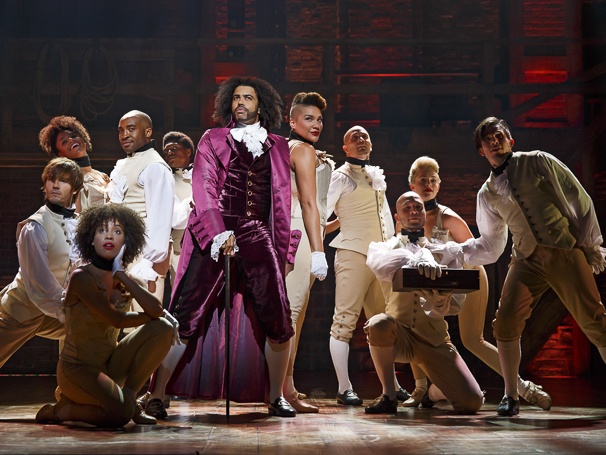
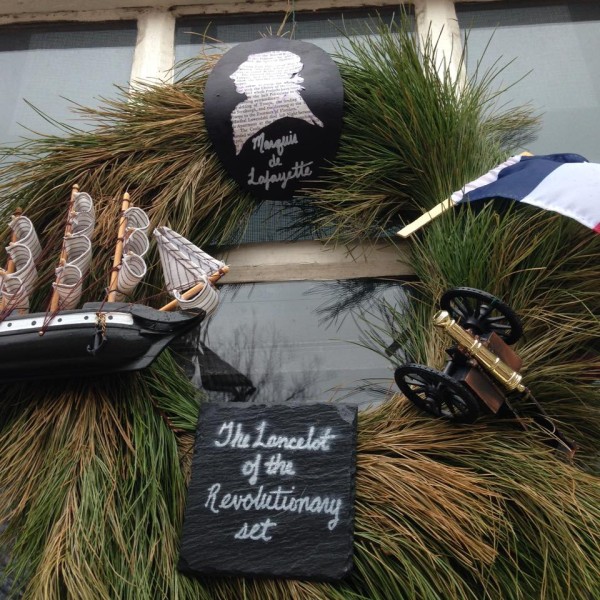
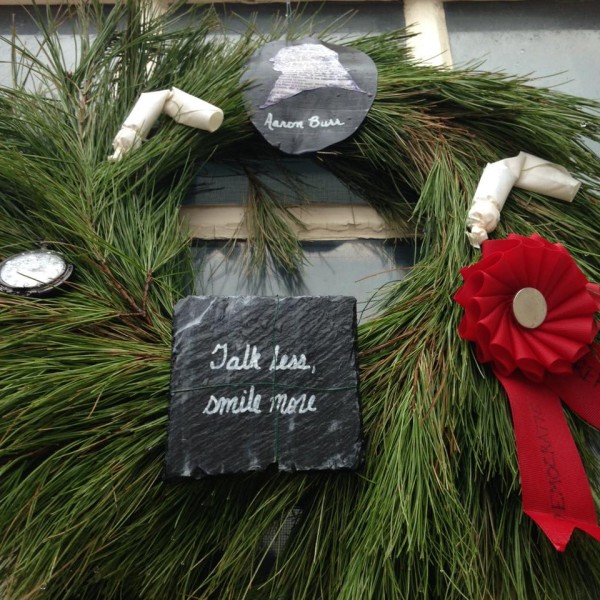
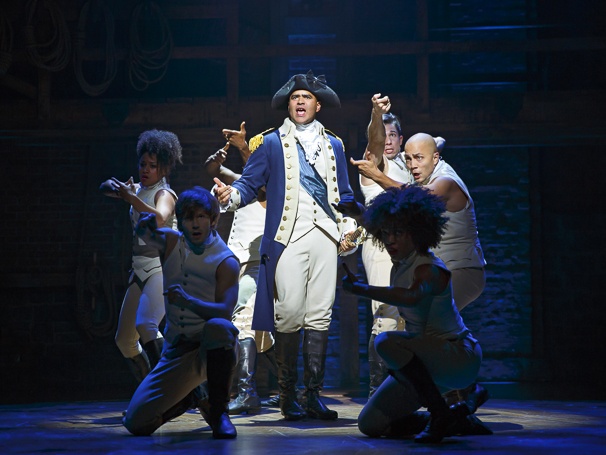


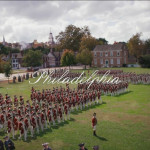
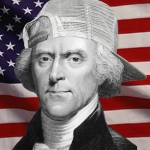
Well done, Emily. I’ve shared your post on the Facebook page for my public radio show Your Weekly Constitutional, which is underwritten by James Madison’s Montpelier. You might enjoy this episode, in which I interview ConSource Executive Director Julie Silverberg about what she calls “Ham the Man.”
http://ywc.podomatic.com/entry/2016-02-12T10_24_08-08_00
Don Moore says
Bravo! Well done. An excellent piece. Thank you for sharing.